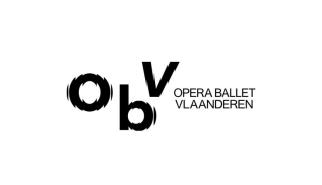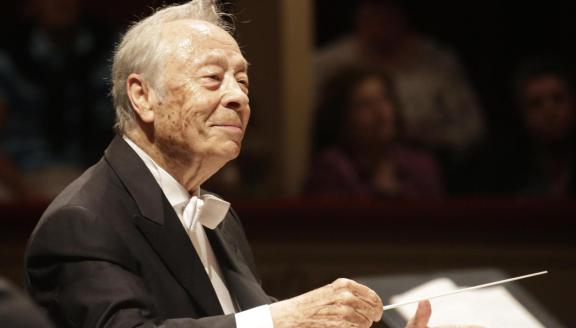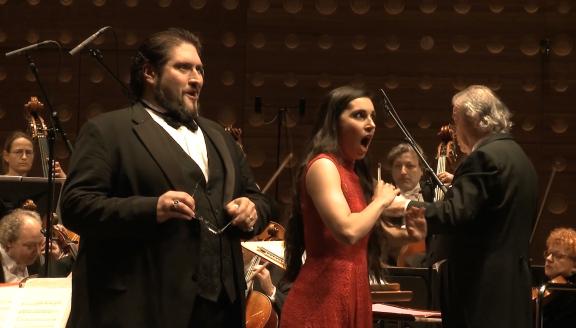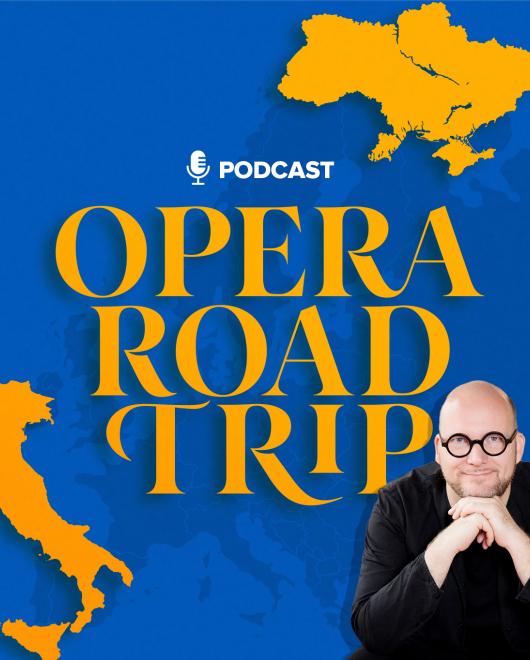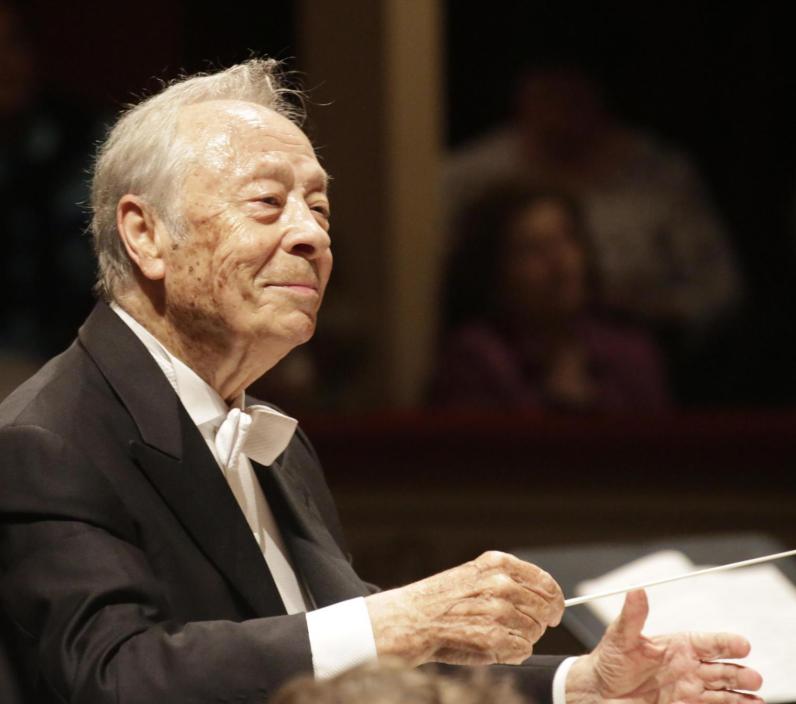

Some of the world's greatest belcanto singers pay tribute to the Italian conductor - a passionate promoter and performer of Gioachino Rossini.
Cast
|
Sopranos
|
Salome Jicia
|
|---|---|
|
Sopranos
|
Carmen Romeu
|
|
Mezzo-sopranos
|
Cecilia Molinari
|
|
Mezzo-sopranos
|
Teresa Iervolino
|
|
Tenor
|
Enea Scala
|
|
Tenor
|
Maxim Mironov
|
|
Baritones
|
Nicola Alaimo
|
|
Bass
|
Carlo Lepore
|
|
Bass
|
Michele Pertusi
|
|
Chorus
|
Opera Vlaanderen
|
|
Orchestra
|
Symphony Orchestra Opera Vlaanderen
|
| ... | |
|
Music
|
Gioachino Rossini
|
|---|---|
|
Conductor
|
Donato Renzetti
|
| ... | |
Video
The story
Programme
Gioachino Rossini (1792-1868)
IL BARBIERE DI SIVIGLIA
Overture
Cavatina Largo al factotum (Figaro), Nicola Alaimo
Recitative Oh cielo ! & Duet All'idea di quel metallo portentoso (Gigaro, Comte Almaviva), Nicola Alaimo, Maxim Mironov
Aria La calunnia è un venticello (Basilio), Michele Pertusi
Recitative Ma bravi ! & Duet Dunque io son (Rosina & Figaro), Cecilia Molinari, Nicola Alaimo
Quintet Don Basilio! (Rosina, Conte Almaviva, Figaro, Bartolo, Don Basilio), Cecilia Molinari, Nicola Alaimo, Maxim Mironov, Carlo Lepore, Michele Pertusi
TANCREDI
Recitative Oh patria ! & Cavatina Di tanti palpiti (Tancredi), Marianna Pizzolato
Recitative Che feci & Duet L'aura che intorno spiri (Tancredi & Amenaide), Marianna Pizzolato, Mariella Devia
Scene & Cavatina Di mia vita infelice (Amenaide), Mariella Devia
IL VIAGGIO A REIMS
Recitative A perche la connobi? & Aria Invan strappar del core (Lord Sidney, Koor), Choir Opera Vlaanderen
Recitative Bravo il signor Ganimede & aria Medaglie incomparabili (Don Profondo), Carlo Lepore
GUILLAUME TELL
Overture
Recitative Ils s'éloignent enfin & Romance Sombre forêt (Mathilde), Carmen Romeu
Aria Sois immobile (Guillaume Tell), Nicola Alaimo
Recitative Ne m'abandonne point & Aria Asile héréditaire (Arnold), cabaletta & choir, Gregory Kunde, Choir Opera Vlaanderen
Final En vain il veut nous fuir, Tutti
PETITE MESSE SOLENNELLE
Agnus Dei, Marianna Pizzolato, Choir Opera Vlaanderen
Insights
Rossini's second youth
The meeting of two maestros
During his very short career, Gioachino Rossini (1792-1868) was, at the start of the nineteenth century, responsible for one of the most radical stylistic innovations in Italian opera. He was barely thirty-seven when he composed his last opera, Guillaume Tell (1829). He worked on an approach to opera-writing that gave musical-dramatic shape to the societal, social and geopolitical upheavals of his era in a style rooted in the 18th century opera tradition. Even though he was entirely apolitical in his life both as a man and a composer. The societal vortexes he found himself in and to which he gave musical form in endless whirlwinds of sound were not to be underestimated. He was born three years after the most far-reaching political and societal upheaval in 18th-century Europe: the French Revolution. Over a period of hardly twenty-six years, France, which was to become his second home, experienced the end of a ‘thousand-year-old monarchy’ with the death on the scaffold of the last king, who had once ruled omnipotently over the country ‘by the grace of God’. This was followed by the appearance on the political scene of a Corsican army officer who first crowned himself emperor of France. He ruled over almost the whole of continental Europe, was defeated twice, though only a few years after his triumph, foreign troops marched through the French capital for the first time in four hundred years. In 1812, the year of Rossini’s first major breakthrough, with five premieres in a row, the geopolitical map of Europe was redrawn at the Congress of Vienna. It comes as no surprise that these upheavals, that demonstrated the instability of structures both old and new, brought with them a new sort of experience of history and of current situations. As a man of his time, Rossini was sensitive to these upheavals and sought a musical language in which he could give shape to these new sensitivities. He was to continue throughout his career to match his operas with the world around him, with its unsteady structures and hypersensitivity to new phenomena. During his short career he was an acclaimed composer who saw his works performed on all the major European stages. After his death, the popularity of his oeuvre declined and it is only his international hit Il barbiere di Siviglia that remained on the bill all over the world.
It was only after the Second World War that renewed attention was paid to the utterly forgotten serious operas by this maestro from Pesaro. It was such people as Alberto Zedda (1928-2017) who, with their boundless efforts and enthusiasm, once again showed the many-sided and innovative nature of Rossini’s oeuvre. As Reto Müller indicates in his article in this programme, it is thanks to Zedda’s many and varied abilities and multitasking that he became one of the world’s authorities on Rossini. It started with Alberto Zedda the young conductor, who questioned the Barbiere score that had been passed down when he found it contained several anomalies; it was Zedda the musicologist who delved into the archives and compiled a new, critical edition of the work based on the rediscovered original manuscript. It was he that was able to convince the then young celebrity conductor Claudio Abbado to conduct this critical version of the work and thereby breathe new life into Rossini’s oeuvre in the mid-twentieth century. From that time onward, Alberto Zedda worked indefatigably on the rediscovery of the many forgotten gems by Rossini. In the course of his career, Zedda’s unceasing questioning of the maestro’s oeuvre made him not only an authority as a Rossini conductor, scholar and publisher, but also meant that he developed a personal vision of the specific nature of the Rossini style (of singing). He was a mentor to generations of Rossini performers, to whom he gave a platform at his Rossini Opera Festival in Pesaro. Alberto Zedda’s career was one of constant cross-fertilisation between these different disciplines.
In 2014, on the occasion of the production of Otello at Opera Vlaanderen, he said the following regarding Rossini’s unique writing style and its performance: 'When you open a score by Rossini, it is exactly as if you have already seen this music. But when you look in detail it turns out that there is a bigger difference between Tancredi and Semiramide than between Verdi’s La traviata and Otello. The vocal aspect is almost the same, but the difference lies in the RHYTHM. Rossini’s rhythm is the equivalent of creative energy, fantasy and locomotion. In his work, the heart of the melody lies in the rhythm. There is a sort of melodic verismo (verismo melodico). A rhythm that underpins, and gives life and meaning to what is happening on stage. The interpretation of the vocal line is supplied by the performers. In Rossini’s compositions, one can just as easily laugh or cry with the same notes. It is the interpreter who determines the content and meaning of the music, not the composer. A sort of sensual electricity must arise between the music and its performer.'
Gioachino Rossini and Alberto Zedda were two Italian maestros who have remained linked over the years. The latter gave the former a second youth. Maestro Zedda was not so keen on aria concerts, but a concert presenting the masterly career of his composer on the basis of his preferred works would definitely have met with his approval.
Anne-Mie Lobbestael
